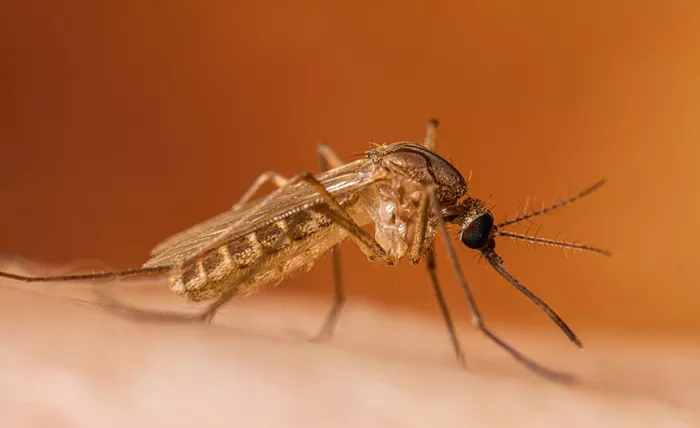LONDON — West Nile virus has been detected in UK mosquitoes for the first time, according to the UK Health Security Agency (UKHSA). The virus was found in mosquitoes collected from marshlands in south-east England during routine monitoring.
What Is West Nile Virus?
First identified in Uganda in 1937, West Nile virus is spread mainly by Culex mosquitoes, particularly Culex pipiens, which feed on birds. The virus cycles between birds and mosquitoes but can occasionally infect humans and animals.
Most infected people show no symptoms. About 20% may develop mild flu-like illness. In rare cases (1 in 150), the virus can cause severe conditions like encephalitis or meningitis, especially in older adults.
The virus does not usually spread between people, though rare cases have occurred through blood transfusions or from mother to child during pregnancy.
How Did It Reach the UK?
Experts suspect migratory birds carried the virus from other countries. UK mosquitoes likely became infected after feeding on these birds. PCR tests confirmed the presence of viral genetic material, though this does not guarantee the virus is active or transmittable.
Risk of Spread in the UK
The UK’s cool climate limits the virus’s ability to spread. At around 15°C, it takes too long for the virus to develop inside mosquitoes before they die. In warmer climates, this process is faster, enabling outbreaks.
With climate change and longer, hotter summers, these conditions may become more favourable for virus transmission in the UK.
Global Situation
West Nile virus has expanded beyond Africa and the Middle East in recent decades. It caused major outbreaks in Europe and North America. In the US alone, the virus has led to over 60,000 reported cases and 3,000 deaths since 1999. In 2024, 19 European countries reported 1,436 local cases and 125 deaths, mostly in warmer regions like Italy, Greece, and Spain.
Should the Public Be Concerned?
No human cases have been reported in the UK, and the risk remains very low. Most concern lies with travel to affected countries.
Travellers are advised to use mosquito repellent, wear long sleeves, and take extra precautions in the evening when mosquitoes are most active.
Though current conditions do not support widespread transmission in the UK, ongoing surveillance and awareness are essential as the climate warms.
Related topics:


